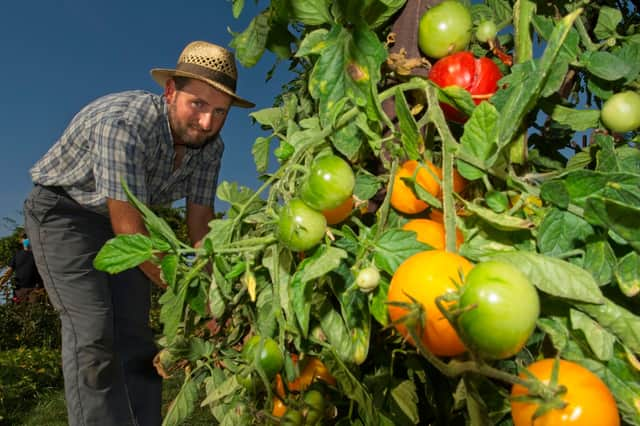Growing food and sharing meals can help address the mental health problems that often lie behind homelessness – Ewan Aitken


But other than how well they all apply to me, there’s not a lot connecting these “day of” designations.
Next week, though, there's a day with two themes which are more meaningfully connected. Sunday, October 10, is both World Homelessness Day and World Mental Health Day. These two very real and difficult challenges are closely connected, and each can lead to and be exacerbated by the other.
Advertisement
Hide AdAdvertisement
Hide AdOne of the pandemic’s silver linings has been the increased willingness to break down the stigma around mental health and recognise it as something everyone can struggle with. I hope nobody now would challenge the statistic that one in four of us struggle with our mental health.
I am among those one in four. Three times now it’s been serious enough for me to feel I needed to seek professional therapeutic help, and I’m glad to have done so. I was in a position to be able to access that support directly and relatively quickly because I had people around me who stuck with me when things were getting tough and helped me see it was OK to seek help, and, of course, because I had the means to pay for it.
Many, many others have neither the supportive relationships nor the financial resources I had, and so many fall through the net.
Vulnerabilities brought on from poor mental health can cause a spiral of family breakdown, job loss and more, and homelessness can be a consequence. So many of those who Cyrenians support tell us the trigger to their homelessness was struggling with how they felt about themselves and how they felt others saw them. So often we see the stress and isolation of homelessness making mental health problems worse and leaving little space to heal.
Advertisement
Hide AdAdvertisement
Hide AdIt’s why we concentrate on helping folk build and maintain healthy relationships as much as on the practicalities of getting people into tenancies (important as that part is). I remember talking with someone we were supporting in our community garden at the Royal Edinburgh Hospital.
They’d been struggling with mental health for years, and actually lost their home whilst they were a patient. Their time in the garden growing food, harvesting it, and sharing meals with others built their confidence and helped them see they were not alone.
Hearing others had similar stories, they began to feel able to push past the stigma to address their mental health struggles and the homelessness which was a consequence.
Eventually they felt strong enough to take on a tenancy again, and now they come back to the gardens as a volunteer, supporting others on a similar journey. They told me, “it’s coming back here to be part of this community which means I can cope with having my own house”.
Advertisement
Hide AdAdvertisement
Hide AdStories like this remind me that tackling homelessness involves building confidence, community, support and sharing meals, as well as a new set of keys. Putting mental health and well-being front and centre makes all the difference.
Ewan Aitken is CEO of Cyrenians Scotland
A message from the Editor:
Thank you for reading this article. We're more reliant on your support than ever as the shift in consumer habits brought about by coronavirus impacts our advertisers.
If you haven't already, please consider supporting our trusted, fact-checked journalism by taking out a digital subscription.
Comment Guidelines
National World encourages reader discussion on our stories. User feedback, insights and back-and-forth exchanges add a rich layer of context to reporting. Please review our Community Guidelines before commenting.
